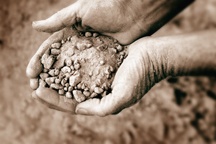 Polycyclic Aromatic Hydrocarbons (PAHs) are a large group of organic compounds found in the environment. PAHs consist of more than 100 chemicals that are released from burning coal, gasoline, oil, tobacco, trash and wood.
Polycyclic Aromatic Hydrocarbons (PAHs) are a large group of organic compounds found in the environment. PAHs consist of more than 100 chemicals that are released from burning coal, gasoline, oil, tobacco, trash and wood.
The National Institute of Health further describes PAHs:
“PAHs are found in the asphalt that covers roads and parking lots and in smoke and soot. They are also found in coal tar, coal tar pitch, and creosotes, which are by-products of distilling and heating coal and some woods. Coal tar products are used in medicines for skin diseases, such as psoriasis, and in insecticides, fungicides, and pesticides. Coal tar creosote is widely used for wood preservation. Coal tar and coal tar pitch are used for roofing, road paving, aluminum smelting, and production of coke, a coal residue used as fuel.
“Some PAHs are used to make medicines, dyes, plastics, and pesticides.”[1]
PAHs are monitored by the U.S. Environmental Protection Agency and European Union because of their carcinogenic characteristics. “Exposure to large amounts of coal tar creosote (PAHs) may result in convulsions, unconsciousness, and even death. Breathing vapors of coal tar, coal tar pitch, and creosote can irritate the respiratory tract. Eating large amounts of herbal supplements that contain creosote leaves may cause liver damage.” PAHs have been a concern since the late 1980s.
Teledyne Tekmar recently completed a study to validate the extraction performance of its AutoMate-Q40 by monitoring PAHs extracted from soil. The target compounds were determined by gas chromatography mass spectrometry using selective ion monitoring. The AutoMate-Q40 is a new system that automates the QuEChERS sample preparation workflow. QuEChERS is an extraction method applicable for PAHs since it offers good selectivity and sensitivity when extracting these compounds in soil samples.
For this study, clean soil was purchased from a hardware store, and placed in an oven to dry overnight. The following day, the soil was passed through sieves to give a uniform surface area. For the analysis, the AutoMate-Q40 used 6.5 g of Unbuffered QuEChERS extraction salts (MgSO4 and NaCl). The soil was tested for 16 different PAHs.
The AutoMate-Q40 successfully processed the soil samples for PAHs. The combined PAH spikes recoveries of 90.1%, with an average RSD of 2.90% exceeded the requirement outlined for this application. The automated extraction process enables an easy, reliable and more reproducible extraction, as well as time and labor savings.
Download Teledyne Tekmar’s Application Note, Analysis of EU15+1 PAHs in Soil by the AutoMate-Q40: An Automated QuEChERS Solution, for full details about sample prep and analysis, instrument calibration results and reproducibility, and accuracy result.
[1] http://toxtown.nlm.nih.gov/text_version/chemicals.php?id=80
